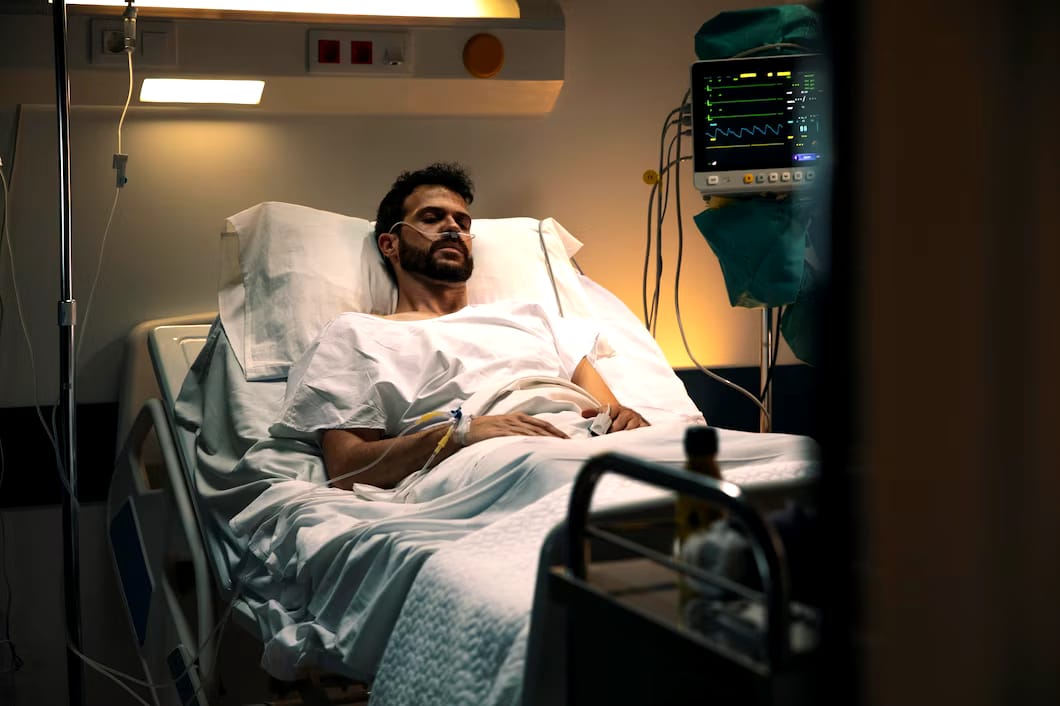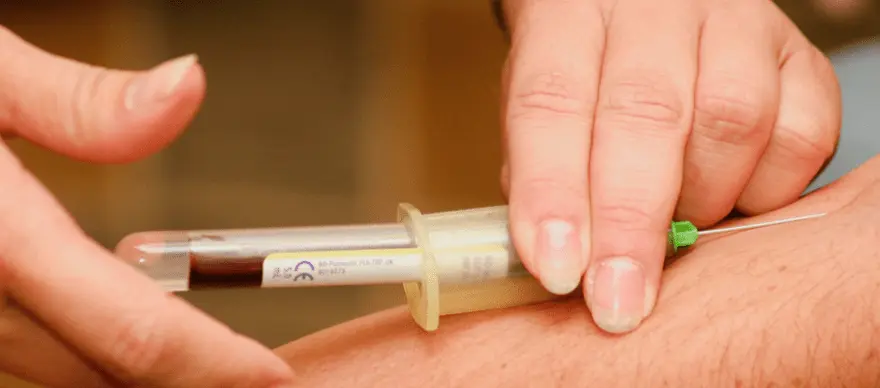Lung Cancer
Everything You Need to Know About Lung Cancer
What is lung cancer? Lung cancer refers to cancers originating in the lungs, in airways or air sacs. While persistent cough, chest pain, and shortness of breath are general symptoms, it's important to note that the signs of lung cancer in women may vary. What are the types of lung cancer? There are two main types of lung cancer: Non-small cell lung cancer (NSCLC) and small cell lung cancer. Non-small cell lung cancer (NSCLC) Non-Small Cell Lung Cancer (NSCLC) is the most prevalent type, includes three subtypes: adenocarcinoma, squamous cell carcinoma, and large cell carcinoma. Small Cell Lung Cancer (SCLC) Small Cell Lung Cancer (SCLC) is characterised by rapid growth and early metastasis. Other Types of Cancer in the Lungs Other rare types of lung cancer exist, including carcinoid tumours and sarcomas. What are the stages of cancer? Cancer staging considers factors such as tumor size and depth of tissue invasion. Lung cancer staging In the early stages (0-I), the tumor is localised within the lung. In stages (II-III), the cancer may involve nearby structures. In the advanced stage (IV), the cancer spread to distant organs. Limited vs. extensive stage Limited-stage indicates cancer confined to one lung or its nearby lymph nodes. Extensive-stage shows broader dissemination, reaching beyond the initial lung and associated lymph nodes. What is metastatic lung cancer? Metastatic lung cancer occurs when cancer cells from the lungs spread to other parts of the body. How common is lung cancer? Lung cancer ranks among the most common cancers worldwide. What are the symptoms of lung cancer? Common lung cancer symptoms includes: persistent cough chest pain shortness of breath coughing up blood. Other lung cancer symptoms may include: fatigue unexplained weight loss recurrent respiratory infections. If you find any abovementioned lung cancer symptoms do not panic, consult your doctor, because these could be the symptoms of other non-serious diseases. What are the first signs of lung cancer? It includes a persistent cough, changes in breathing, chest pain, and unexplained weight loss. How long can you have lung cancer without knowing? Cancer may silently develop for years before lung cancer symptoms emerge; early-stage lung cancer can be asymptomatic. What causes lung cancer? Lung cancer causes can be many, it generally arises from abnormal cell division due to mutations that remove the safeguards, allowing uncontrolled multiplication and spread throughout the body. What are the risk factors for developing lung cancer? Primary lung cancer risk factors include: smoking, exposure to passive smoking, occupational hazards (asbestos, radon), family history, pre-existing lung diseases. Does vaping cause lung cancer? Vaping involves some cancer-causing substances, through a nicotine and flavouring mist. Long-term effects, including potential lung damage, remain uncertain. Can non-smokers get lung cancer? Yes, non-smokers can develop lung cancer. How is lung cancer diagnosed? Lung cancer is diagnosed through imaging tests like PET/CT scans, biopsies, and bronchoscopy. Does a chest X-ray show lung cancer? A chest X-ray can reveal signs, but a CT scan confirms the disease. What tests will be done to diagnose lung cancer? Lung cancer diagnosis is done by blood tests, imaging (CT, PET scans), biopsies, and molecular tests, examining genetic markers for lung cancer treatment. Blood Test Blood tests for lung cancer may include CEA (Carcinoembryonic Antigen) and CYFRA 21-1. Imaging Imaging techniques such as CT scans and PET scans provide detailed visuals of the lungs. Biopsy Biopsy involves extracting tissue samples for microscopic examination. Molecular Tests Molecular tests analyse genetic markers, guiding lung cancer treatment decisions. What medications/treatments are used in lung cancer? Lung cancer treatments encompass surgery, radiofrequency ablation, radiation therapy, chemotherapy, targeted drug therapy, immunotherapy, and palliative care. Surgery Surgery involves removing tumours or affected lung tissue, and is often a primary lung cancer treatment for early-stage lung cancer. Radiofrequency Ablation It uses heat to destroy cancer cells, often considered for small tumours or as a complement to surgery. Radiation Therapy High-energy rays target cancer cells to eliminate residual cancer cells. Chemotherapy Chemotherapy utilises drugs to kill or slow cancer cell growth, offering systemic lung cancer treatment for advanced cases. Targeted Drug Therapy Targeted therapies focus on specific molecular markers in cancer cells and blocks their growth signals. Immunotherapy Immunotherapy stimulates the body's immune system to fight cancer cells. Treatments to Ease Symptoms (Palliative Care) Palliative care aims to improve the quality of life, manage lung cancer symptoms and provide support. Side Effects of the Treatment Common side effects include fatigue, nausea, and hair loss. How do I manage symptoms and side effects? Manage lung cancer symptoms with medication prescribed by your healthcare providers and some lifestyle changes. How can I prevent lung cancer? You can prevent lung cancer by: Avoiding tobacco. Reduce exposure to environmental carcinogens, such as radon. Adopt a healthy lifestyle, including exercise. Lung cancer screening Early detection through screening with imaging tests like low-dose CT scans improves treatment outcomes and survival rates. What can I expect if I have lung cancer? You might experience hoarseness, chest pain, shortness of breath and worsening, weight loss or persistent cough. Does lung cancer spread quickly? Small cell lung cancer can spread rapidly, while non-small cell lung cancer may progress more slowly. Can lung cancer be cured? Cure for lung cancer depends on the type, stage, and response to treatment. What are the survival rates for lung cancer? Lung cancer survival rate ranges from 90% for tumours under 1 cm to 80% for that 2 - 3 cm. How do I take care of myself? Maintain a healthy lifestyle with a balanced diet, regular exercise, and adequate rest. When to see a doctor? See a doctor for persistent cough, chest pain, or breathing difficulties. Conclusion Lung cancer demands vigilance for early detection, with lifestyle choices playing a crucial role in lung cancer prevention. Timely investigation of the cause of lung cancer, and medical intervention, coupled with treatments, can impact outcomes. If you are experiencing any health issues or are worried about the symptoms discussed above, get yourself tested at Metropolis Healthcare. We ensure that you get the accurate results in no time.
Cancer in Men: Prostate Health and Common Concerns
Dr Shaikhali M. Barodawala, Scientific and Business Head, Integrated Oncopathology, Consultant and Head, Anatomy Pathology, Global Reference Laboratory, Metropolis Healthcare Ltd., believes that Edwin Markham's quote, "For all your days, be prepared and meet them ever alike when you are the anvil, bear - when you are the hammer, strike!!", inspires us to be prepared to face the challenges life brings every day. Cancer is a disease that causes abnormal growth of cells that can spread to other organs or tissue. It is a global health concern that impacts a person's physical and emotional health. It also causes financial stress to the patients and their families. The World Health Organisation (WHO) labels cancer as the second leading cause of death in the world. In India, too, there have been rising cases of cancer-related deaths despite new and improved medicines and strategies in cancer treatment. According to an ICMR study, one in nine Indians is prone to developing cancer. There has been an increase in cases of common cancers in men such as cancer of the lungs, oral cavity, prostate, stomach, liver and colorectal cancer. However, the good news is that nearly 30% to 50% of cancer deaths are preventable. Avoiding cancer-related risk factors and following a healthy lifestyle can reduce the chances of cancer. Cancer care not only includes treatment strategies like surgery, chemotherapy, targeted therapy, immunotherapy, palliative care and pain management but also cancer prevention, increased awareness, timely detection and diagnosis. Cancer symptoms are often not noticed in the early stages. An example would be the symptoms of male prostate cancer which are the least evident if you are not aware of what the possible symptoms could be. They become worse over time and reduce the chances of recovery. Therefore, staying aware of any changes in the body is important. Furthermore, consulting the doctor on noticing any symptoms of cancer in men is crucial for early diagnosis and appropriate treatment. Common Cancer Symptoms in Men Dr Shaikhali M. Barodawala says that these are some of the common symptoms of cancer that should be watched out for among men: Abnormal growth An abnormal growth such as a lump in any part of the body including the chest, testicles, lymph nodes, muscles and soft tissues like tendons and ligaments may be a sign of cancer in men. Consulting the doctor at the earliest is advisable. Weight loss without trying While unexplained weight loss may indicate any other health condition, it is important to consult the doctor. Losing weight without changing the diet or without exercising could be a cancer symptom and a sign of stomach, pancreatic, oesophagal or lung cancer. Persistent pain Some bone cancers and cancers involving bones can cause intense pain and weakness. Therefore, experiencing constant and severe pain like a headache or back pain or stomach pain or pain in any part of the body may be a sign of an abnormality and requires timely check-ups. Abnormalities in the oral cavity The appearance of ulcers, sores or lumps in the oral cavity (mouth, lips, the lining in the lips and cheeks, the front of the tongue, the gums, the roof of the mouth and the floor of the mouth under the tongue) should be reported to the doctor. People consuming tobacco or smoking cigarettes must especially stay aware of such abnormal growth and consult the doctor at the earliest. Constant coughing/hoarse voice Constant coughing, hoarseness of voice, shortness of breath and coughing out blood are lung cancer symptoms. Persistent symptoms such as these are alarming and should be reported to the doctor. They will order cancer tests to detect the reason behind these conditions and prescribe appropriate treatment. Difficulty in swallowing, indigestion, stomach pain and changes in bowel movement Abdominal pain followed by vomiting is an indication of bowel conditions. If abdominal pain is also followed by blood in stools, diarrhoea or constipation, it is advisable to consult the doctor for evaluation. Besides indigestion, experiencing pain or burning sensation in the throat or chest while swallowing is a sign of throat or stomach cancer and needs to be checked in time. Abnormal bladder pattern Changes in bladder pattern including urinary incontinence, blood in urine, discomfort while passing urine or recurring urinary infections are symptoms of bladder and male prostate cancer. Consulting a doctor is crucial to avoid complications. Unexplained exhaustion Exhaustion despite adequate sleep and rest and lack of energy without physical exertion are also causes for concern. Patients must consult their doctors on experiencing these cancer symptoms. To sum up Consulting the doctor on experiencing any of the above-mentioned symptoms of cancer in men is critical. It will help in the early detection of the disease. It will also enable the doctor to plan the ideal line of treatment. Furthermore, it will help the patient plan strategies for cancer care with their doctor which will improve their chances of recovery.
Coping With a Lung Cancer Diagnosis
The doctor will screen you for lung cancer if a tumour-like growth in the lungs is detected during a CT (Computed Tomography) scan. Lung cancer has general symptoms too, including: Persistent cough Blood in the sputum Loss of appetite Weight loss for no reason Feeling tired Breathlessness Pain in chest But remember, not every type of lung cancer has symptoms. A positive cancer diagnosis can occur without symptoms too. Cancer is the most dreaded of all ailments. Diagnosis of lung cancer can come with social stigma too since many might wonder if you have a smoking habit which caused the cancer. Around 95% of lung cancer patients have a history of smoking. This article has a list of tips that can help you cope with the emotional and physical toll your lung cancer diagnosis can bring. What is ALK-Positive Lung Cancer? ALK is an abbreviation for anaplastic lymphoma kinase. ALK is the gene in the body present from the embryo stage. The gene helps develop our nervous system and the gastrointestinal tract (gut). ALK-positive lung cancer occurs when there is a mutation or a misarrangement in the ALK gene. When such mutation occurs in the DNA of lung cells, they grow abnormally and multiply into more abnormal cells, causing cancer. These cancer cells start in the lungs and may eventually spread to other parts of the body, making it stage 4 (secondary or metastatic) cancer. The ALK-positive lung cancer forms around 4% of non-small cell lung cancers (NSCLC). There is a higher percentage of ALK-positive lung cancer in patients younger than 55 years of age and never smoked. Confirmation of ALK-Positive Lung Cancer When our individual DNA is being ‘written’ and if there is a typing error, the cells receiving the wrong information will grow into a tumour. Diagnostic tests such as biomarker testing look for such typing mistakes. The ALK-positive lung cancer can be further confirmed by testing your blood samples and a tumour biopsy. The procedures involve: Microscopic analysis of chromosomes Immunohistochemistry analysis of proteins Next generation sequencing Liquid biopsy The treatment is decided once the type and stage of cancer are determined. Remember that ALK-positive lung cancer stage 4 has the most treatment implications. How to Cope with Emotions After a Lung Cancer Diagnosis? A doctor saying “you have lung cancer” can be the most feared sentence you have ever heard. Your immediate reaction might be to go numb, hopeless, irritated, angry, or confused as to why it has happened to you, especially when you can’t think of anything you have done personally to get harmed in such a way. It is okay to experience these emotions. As you come to terms with the diagnosis, it is okay to experience extreme emotions at such a time. While trying to find treatment centres and experts who can help with medical options, here are a few supportive tips for coping with the lung cancer diagnosis. Try to put aside anything that is not urgent or important. Use this time to focus only on getting through this challenging time emotionally. Accept that you are not alone. Many people will help you in this journey. Seek help. Find out who can exactly help you and how. Keep away the guilt. Lung cancer patients often think that they made this happen. They start connecting some bad habits, especially smoking with cancer. However, if you let the guilt in, your tensions and worry will only increase. Share your version with your family and friends. They will provide practical and emotional support. Be kind to yourself. You may feel low and tired at times, but be extra kind and prepare yourself for the treatment. It is natural to worry about the treatment. Write down your fears about the treatment and its side effects, and discuss them with your doctor. When you are ready, start gathering facts from an expert oncologist about the type of cancer you have and the possible treatment options. Think ahead and organise your life, so you are set to receive the treatment. At home and office, take help to manage your routine. Be with those who lift your spirit. A cancer diagnosis can change your relationships. Those who love you are equally affected by your diagnosis. Hence sharing this news with them may be the hardest for you. Remember to stay close to every person you love. If they are present during the treatment and caring process, make sure they take enough breaks for themselves. Talk to your healthcare team and know more about your treatment and what to expect from it. This will help you plan while keeping the treatment goals in mind. Manage your symptoms with the help of a nurse or a professional caregiver. Breathlessness and pain can be expected if you have lung cancer. Get into a healthy lifestyle with home-cooked food. Make sure that you eat nutritious meals at regular intervals. Move around as much as you can afford to do, as it will keep your energy levels up. Avoid strenuous exercises. If you are bedridden or bound to a wheelchair, discuss with your doctor or physiotherapist about exercises. Learn yoga and meditation to help you relax and sleep peacefully. Getting enough sleep daily will keep your emotional energy up. Join a support group to share your emotional problems with people who have gone through similar experiences. Whether the diagnosis is made during the early stages of ALK-positive lung cancer or near stage 4, and whatever may be the life expectancy, remember you are not alone. Take necessary support, plan your days and face the treatment head-on so that you can beat cancer. Your doctor may advise you to go for ALK for NSCLC (IHC reflex to FISH) Test. IHC is immunohistochemistry, and FISH is Fluorescence in situ hybridisation. This test is approved for the diagnosis of lung cancer and to check the status of ALK. In the case of an ALK-positive test, your doctor may start targeted therapy such as the treatment of tyrosine kinase inhibitors. Book your test now and get accurate and quick results at Metropolis.
Test For Lungs | Lung Cancer Testing - How to Detect & Identify Early Signs
Introduction Lung cancer is the second most common cancer. Early identification of cancer improves patient outcomes. However, most patients with lung cancer are unaware they have the disease until it has spread to other organs in the body. People at high risk of lung cancer have to undergo screening procedures like medical imaging scans, which have inherent risks. Therefore, researchers focus on developing blood tests to identify lung cancer before the disease is symptomatic. This article will explore different tests to detect cancer and how blood tests can be beneficial in lung cancer detection. What is Lung Cancer? Cancer is developed by uncontrollable cell growth. Cancer that forms in the tissues of the lungs is known as lung cancer. It may spread to the brain or lymph nodes. Other cancers may also reach the lungs. Metastases are cancer cells that spread to other organs. The two common types of lung cancer are small cell and non-small cell lung cancer. These types of lung cancer have distinct growth patterns and have different treatments. Small-cell lung cancer is less common. What Tests Detect Lung Cancer? If you suspect lung cancer, your doctor may perform a series of tests to check for cancerous cells and rule out other conditions. Lung Cancer Detection Using Image Processing Imaging tests provide images of the inside of your body using X-rays, sound waves, magnetic fields, or radioactive chemicals. Doctors may perform Imaging tests before and after a lung cancer diagnosis. These tests help to check the following: To assess treatment efficiency To look for cancer recurrence after treatment To determine the spread of cancer To check for cancerous growths in suspicious areas Chest X-ray In most cases, your doctor will begin by conducting a chest X-ray to search for any abnormalities in the lung. If anything appears suspicious, your doctor may prescribe more tests. Computed Tomography (CT) Scan CT scan provides cross-sectional body pictures on a computer using X-rays. It detects lung cancers more often than chest X-rays. It may also detect enlarged lymph nodes and lung tumours with cancer. This test can also screen for adrenal gland, liver, brain, and other organ masses caused by the spread of lung cancer. CT-Guided Needle Biopsy Doctors may use a CT scan to guide a biopsy needle to get a tissue sample if a suspected cancerous location is deep in your body. Magnetic Resonance Imaging (MRI) Scan The images of the body's soft tissues produced by MRI scans are incredibly detailed. MRI scans use powerful radio and magnetic waves rather than X-rays. When lung cancer has reached the brain or spinal cord, doctors use MRI scans to detect it. Positron Emission Tomography (PET) Scan Doctors inject radioactive tracers into the blood for a PET scan. They collect in the areas where the tissues are damaged and represent as bright spots. PET/CT Scan PET and CT scans are sometimes combined using a specific machine that can conduct both at the same time. It enables the doctor to compare more radioactive regions on the PET scan with a more detailed CT scan. For lung cancer patients, it's the most common PET scan. Bone Scan In a bone scan, doctors inject low-level radioactive material into the blood and collect in abnormal bone. Doctors can use a bone scan to determine if cancer has migrated to the bone. This test isn't compulsory as PET scans indicate if cancer has migrated to the bones. Sputum Cytology It is possible to detect lung cancer cells in sputum by looking at it under the microscope when you have a cough. Biopsy A biopsy includes collecting a sample of abnormal cells. A lighted tube is inserted down your neck and into your lungs during bronchoscopy, a procedure your doctor can use to take a sample. Another option is mediastinoscopy, which involves creating a tiny incision at the base of the neck and inserting medical equipment under the breastbone to get tissue samples from your lymph nodes. Your doctor may conduct a needle biopsy by inserting a needle through your chest wall and into your lung tissue to collect abnormal cells using X-ray or CT scan pictures. Doctors may get a biopsy sample from your liver, lymph nodes, or other places where cancer has spread. Lab analysis of cancer cells will identify the type of lung cancer. A sophisticated test for lung cancer detection reveals specific properties of the cells and helps determine your prognosis and plan your treatment. Metropolis Healthcare limited offers a complete diagnostic profile for helping the patients which includes immunohistochemistry for biomarkers i.e., PDL1, ALK and a wide range of tumour panels to detect specific mutations in patients through next generation sequencing and digital droplet PCR (e.g., cell free DNA for EGFR). Can Blood Tests Identify Lung Cancer? Researchers are looking into biomarkers in your blood as a potential early-detection tool for lung cancer. If you have a biomarker, doctors can objectively monitor your health. In the case of lung cancer, cancer cells release abnormal DNA, antibodies, and proteins, which doctors may use for lung cancer screening. Detection of EGFR mutation detection through blood is offered at Metropolis Healthcare limited; this test is used to type the cancer once it has been detected. Conclusion Blood based tests which detect cell free tumour DNA are being used for biomarker testing. Research is ongoing and future will see them being used in diagnosis
 Home Visit
Home Visit Upload
Upload


















 WhatsApp
WhatsApp